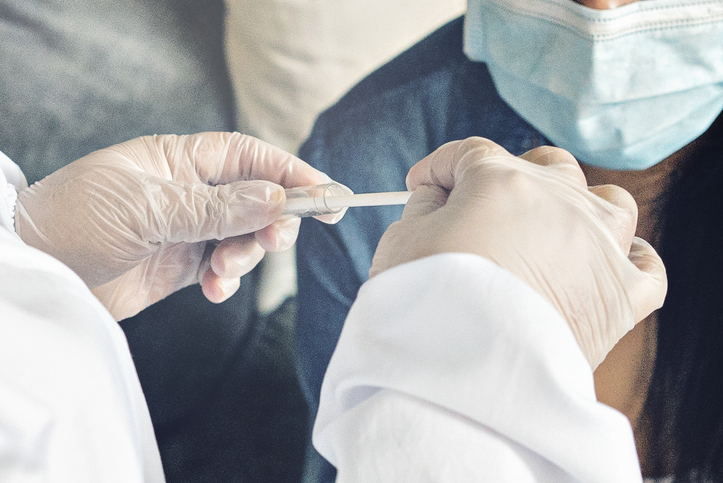Every day lost waiting for the results of COVID-19 tests, has a damaging effect on employees, businesses and the country’s welfare. So, it is more critical than ever before that employers are proactive in supporting their staff and provide access to quick and reliable testing.
The increasing pressure on the Government’s testing programme is leading to reduced availability and delays in patient results and employers are being severely impacted. Employees that are showing virus symptoms are having to quarantine, which leads to severe resourcing and workforce planning problems.
With the pandemic likely to get worse as the winter approaches and seasonal colds and flu increase, what can organisations do to protect and support their employees and achieve more sustainable and reliable outcomes? There are solutions available to organisations that can support employers and employees in these anxious times, as well as help to take some of the pressure off of the Government’s testing programme.
As an NHS partner, we provide COVID-19 support to over one million patients nationwide and work with both businesses and schools, to safeguard their staff. These services provide that much needed reassurance for both employers and employees and include services such as, at-home tests and clinician visits at employees’ homes or the workplace. The tests can be carried out by the employees – whether they have symptoms or not – and results are delivered in 48-72 hours, ensuring a swift return to work.
Below is a Q&A that should answer some of the key issues:
Q1 HOW DO I KNOW IF ME OR MY EMPLOYEES NEED A TEST?
If your employees experience; a fever, persistent cough or loss of smell or taste, they must immediately self-isolate and get a COVID-19 PCR swab test.
Asymptomatic patients may also need to ascertain whether or not they are carrying the virus, especially if they have been in contact with a symptomatic individual. COVID-19 tests detect the virus with or without symptoms, so employers can identify and contain workplace outbreaks.
Q2 WHAT TESTS ARE AVAILABLE?
The primary objective is to ascertain whether a patient is currently infected with COVID-19 using a PCR Swab Test, which is the standard method deployed within the NHS. Here it is fundamentally important that a provider uses only accredited UK laboratories, which can provide results in 48-72 hours – and all positive tests are notified to Public Health England and followed up by a GP telephone consultation.
Q3 HOW CAN I TAKE THE PCR TEST?
There is a choice of clinician-administered and self-administered testing. Advantages of the former include a greater level of certainty that the sample has been taken correctly.
- Clinician-administered at the workplace. a clinician is dispatched to the workplace, where multiple samples can be taken efficiently, for example when running large scale routine testing or to manage tracing. This is suitable for asymptomatic patients only.
- Clinician-administered at employee’s home. A nationwide home visiting service to swab patients in the comfort of their own home. This is available for symptomatic as well as asymptomatic patients.
- Clinician-administered in-clinic. It is imperative that a provider has a network of clinics in major urban areas where asymptomatic patients can come to be swabbed.
- Self-administered. A test is dispatched to the patient’s home address for self-administration. Tests dispatched to a home address are sent via Royal Mail or courier along with detailed instructions for use.
Samples are then packaged in the return envelope provided and sent to the laboratory for analysis. This is suitable for both symptomatic and asymptomatic patients.
Q4 ARE THE TESTS ACCURATE?
These tests are rated on their ‘sensitivity’ – their ability to identify those with infection, and their ‘specificity’ or ability to identify those without infection. The PCR shows a minimum sensitivity of 98% and a specificity of 100%.
Q5 HOW MUCH DOES IT COST?
- Self-administered PCR swab test – £129
- Clinician administered PCR swab test – £199
- Regular on-site PCR swab testing – price dependent upon requirements
We have extensive experience of delivering specialist COVID-19 and testing services for the NHS, local authorities and large private sector organisations. Healthcare professionals help employers throughout the Coronavirus pandemic and beyond. All services and tests are delivered with clinical guidance to provide reassurance when you need it most.
To find out more, please visit our website: https://workplacehealth.live/FE1







